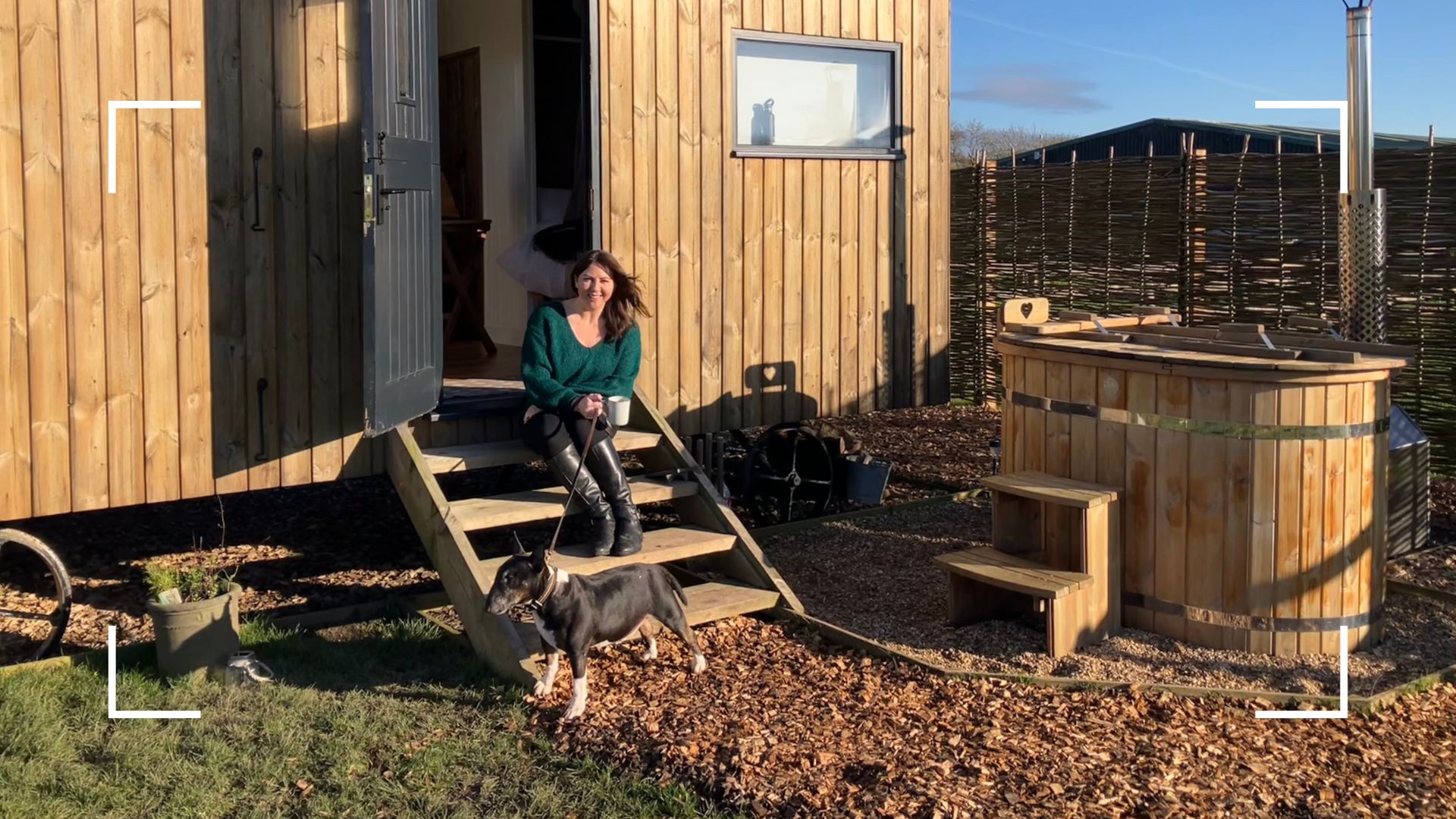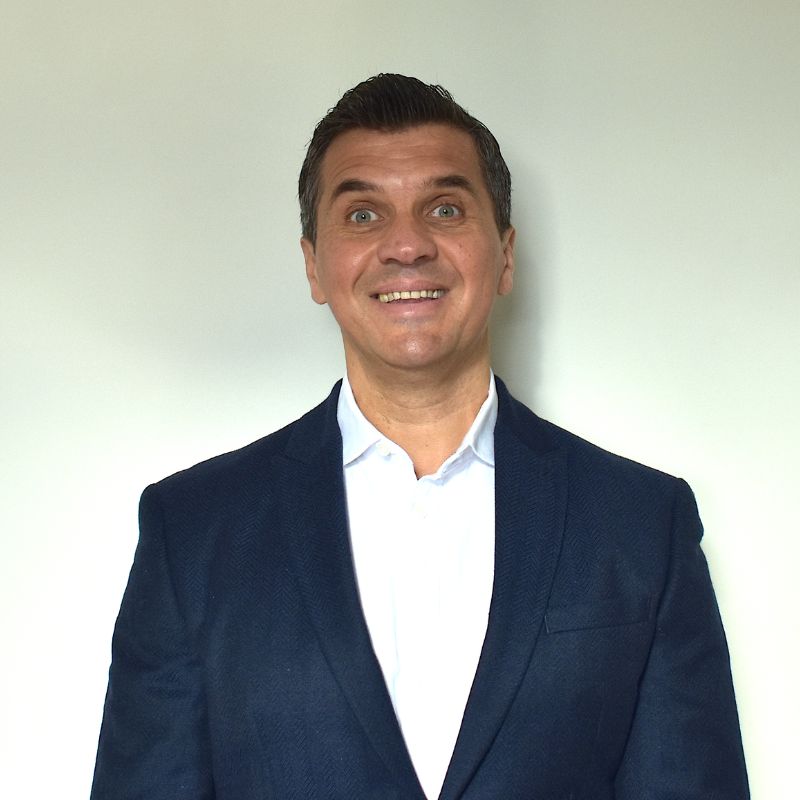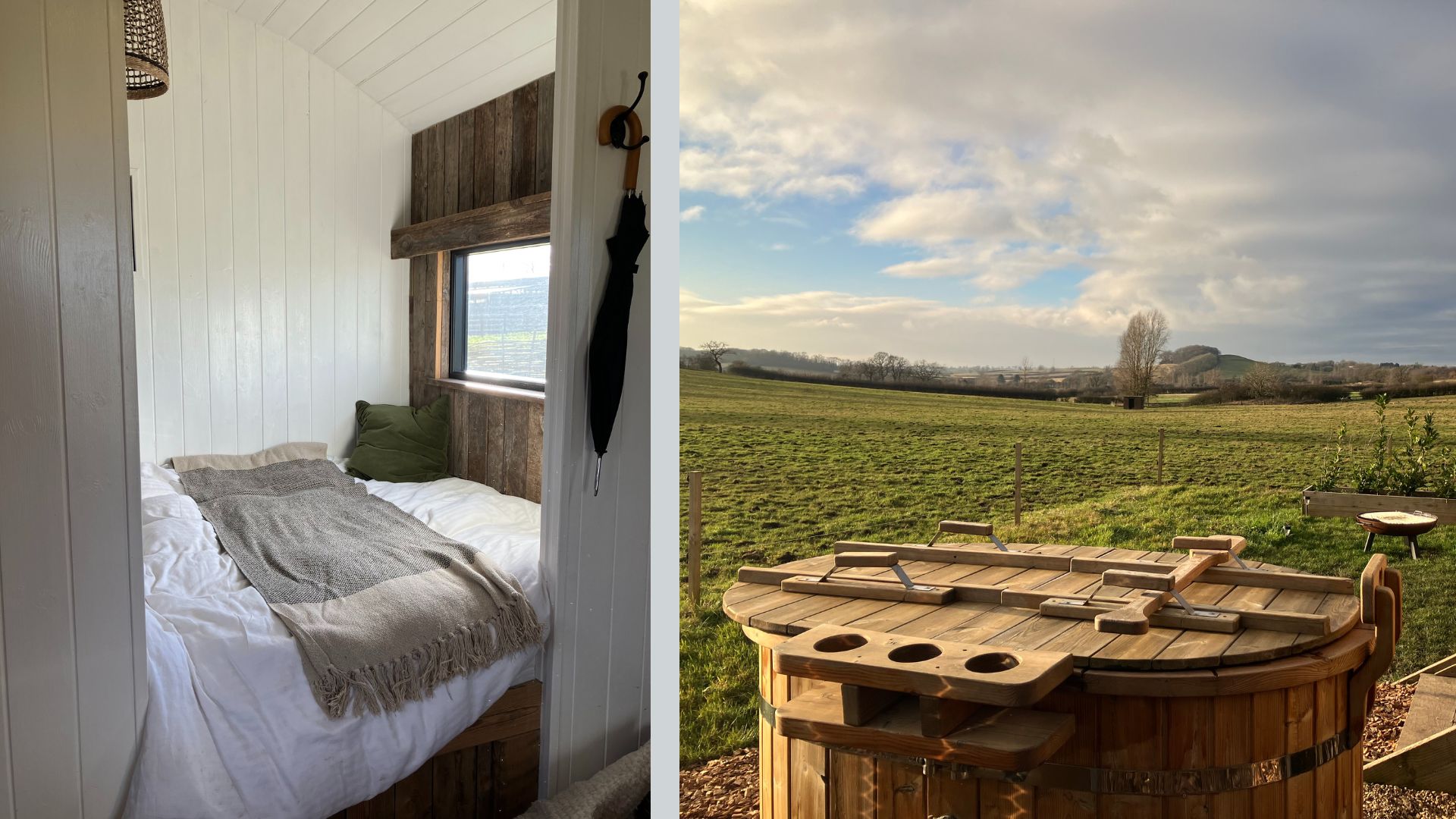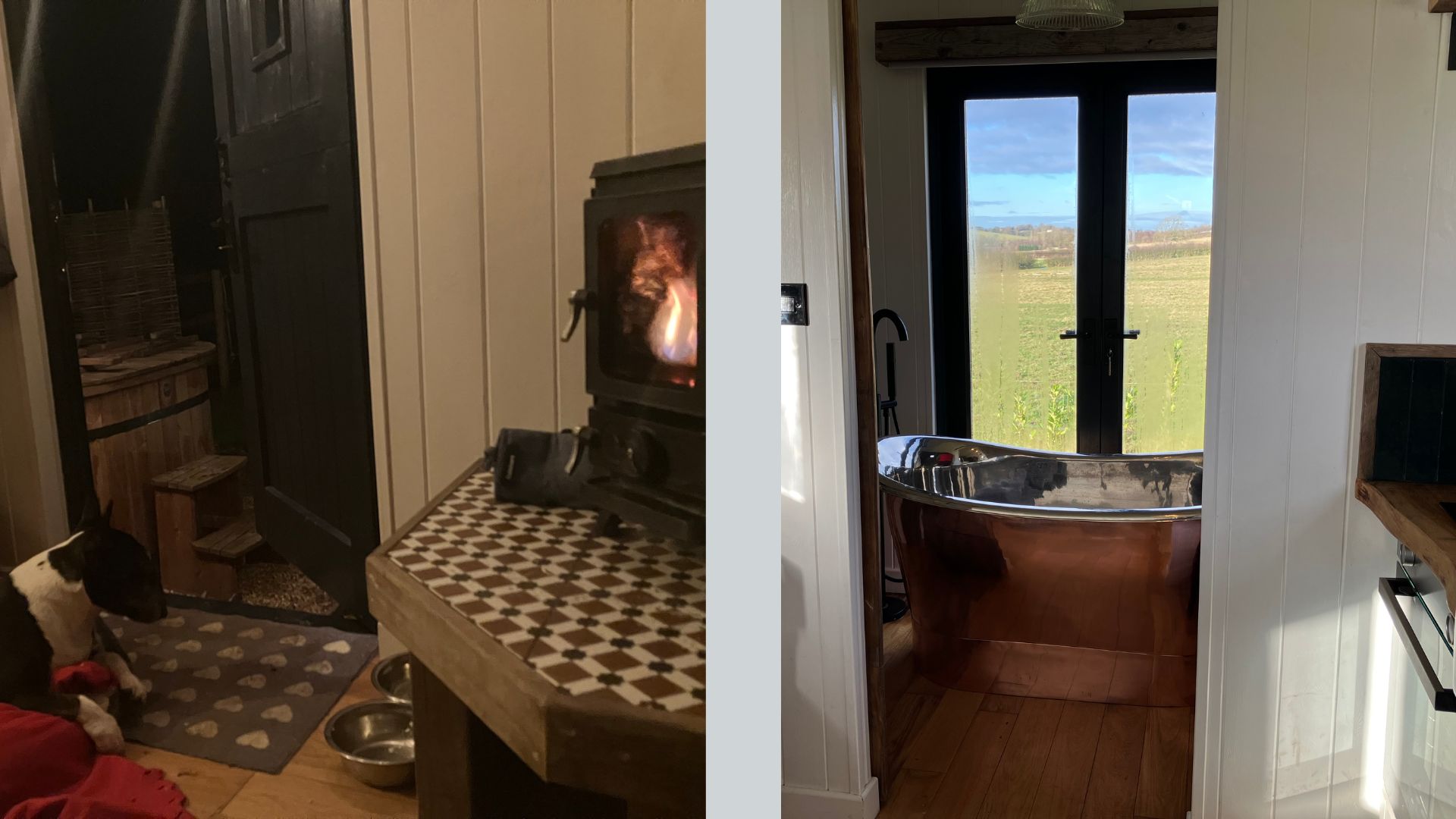I went away for a digital detox - here's what happened and the habits I'm hanging on to in 2024
A digital detox is the perfect chance to disconnect - but can we keep up the habits after the weekend is over? Here, wellness writer Susan Griffin finds out


The idea of a digital detox has been around for a few years now, but in 2024 - when we can access whatever we want online 24/7 - more of us need one than ever before. Here, writer Susan Griffin reveals what happened when she took on a digital detox and the habits she's stuck by since.
Where digital and social media overconsumption was once seen as a distinctly millennial and Gen-Z issue, that's far from the case nowadays. My parents are almost 80 and often remark they use their smartphones more than they would like to. Not that it stops them, mind you. Baby Boomers (born between 1946 and 1964) are as addicted to their smartphones as Millennials (born between 1980 and 1995) and are as prone to experience the associated early signs of burnout as the younger generation, according to a survey by Provision Living, via Forbes.
I'm in my 40s and I'm more than aware of my own dependency on electronic devices. I reach for my phone before I get out of bed, mindlessly scroll online in the middle of the night, in queues, or whenever I am ‘bored’, and I feel my mood impacted by what I see or read. Then, of course, there is the sense you should always be available, whether that is checking work emails at all hours or immediately responding to WhatsApp messages.
In response to a growing global digital dependency, digital detox getaways are becoming increasingly popular and they are among the biggest wellness trends for 2024. Providing a chance to log off and shut down, you won’t find a television or Wi-Fi at these remote hideaways, just an abundance of nature - and quietness too, both literally and mentally. But are they a temporary fix or can a weekend of digital detox lead to long-term changes?
What is a digital detox?
A digital detox refers to the voluntary decision to disconnect from electric devices, including smartphones, laptops, and social media. Just like a nutritional detox aims to provide the body with a rejuvenating boost, a digital detox aims to improve brain health and restore an overall sense of balance.
“The growing trend of digital detoxes suggests people are recognising the need to find a balance between their digital lives and real-world experiences. It reflects a desire for more meaningful connections, increased mindfulness, and a break from the constant stimulation and information overload that screens can bring,” says Eldin Hasa, a neuroscientist, human behaviour expert and transformation coach.
“Excessive screen time can impact the brain's reward system, attention span, and cognitive abilities. Taking a digital detox allows the brain to rest and recover from constant stimulation, leading to improved focus, memory, and overall cognitive function. It also promotes healthier dopamine regulation, which can positively impact mood and mental wellbeing.”
Sign up to our free daily email for the latest royal and entertainment news, interesting opinion, expert advice on styling and beauty trends, and no-nonsense guides to the health and wellness questions you want answered.

Eldin Hasa is a Neuroscientist, Human Behaviour expert and Transformation Coach, and has been coaching and teaching for over 18 years. He specializes in revealing the limiting beliefs and subconscious narratives that dictate and shape behavior, health, relationships, and performance.From individuals to athletes, corporations, and beyond, Hasa helps transform mindset, rewire the brain and help people thrive.
My tech-free trip
For our first-ever digital detox getaway, my partner and I headed to Tilton Hut, part of Kip Hideaway’s Digital Detox collection. While some digital detox companies provide a box to lock your phone away during your stay, wherever you keep your mobile will ultimately require willpower not to reach for it.
We put our phones in a cupboard, so we didn’t have to constantly look at them and be reminded of what we were missing. But competitors such as Unplugged offer lock-and-key boxes to store your phone, if you think you need the extra encouragement to stay away.
With our phones out of sight, they were soon out of mind, a transition that was no doubt eased by the bucolic surroundings of our shepherd's hut. There was no TV or Wi-Fi, just unobstructed views of the Leicestershire countryside. Time that would otherwise be spent messaging, scrolling, emailing, or binge-watching the latest TV series, was used far more wholesomely. Walking in the glorious winter sunshine, bathing in a rolltop copper bath, nestling next to a roaring wood burner with a glass of fizz, and star gazing in an eco hut tub made for two.

Benefits of a digital detox
1. Better sleep
Usually, it takes me a long time to fall asleep and then I will typically wake at 3 am and automatically start scrolling on my phone until I drop off again. But I nodded off before 11 am and didn’t wake up until 8 am. It was the sleep of dreams, similar to how I sleep when camping. No doubt, the fact we spent the evening talking by the fire instead of doomscrolling meant my mind wasn’t buzzing before bed.
Nor was I not subjected to that startling square of light from my mobile either. Blue light - which is emitted by screens - disrupts the production of melatonin, a sleep-regulating hormone. "By engaging in a digital detox, we minimise our exposure to this light, which in turn promotes better sleep quality and overall wellbeing," explains Hasa. It's why those looking to learn how to sleep better and improve their sleep hygiene are often advised to ditch their phone in favour of reading before bed or a non-tech-orientated nighttime routine.
Jade Thomas, psychotherapist and founder of the Luxe Psychology Practice, agrees. "When we are constantly on our devices or 'second screening' [looking at two devices at once, e.g. scrolling on your phone and watching television], our brains can go into overdrive due to over-stimulation. This can potentially affect our sleep as we have to rapidly switch focus."

Jade Thomas BSc MBACP is a psychotherapist and the founder of the Luxe Psychology Practice. Jade studied Psychology for 10 years and is a Registered Psychotherapist with the British Association for Counselling & Psychotherapy and is due to complete her Doctorate in Psychology in September. Her Qualifications include BSc Psychology, BACP Registration (Registration no. 392323) and Final stage of Counselling Psychology Doctorate (PsychD).
2. Less stress
Being shielded from the din of social media and rolling news automatically provided a soothing sense of peacefulness, much like when I'm out running, cycling or hiking. Our time in the hut felt like a return to simpler times pre-Internet or streaming services, and it was the perfect way to reduce our stress levels before heading back to daily life.
Instead of turning the TV on in the morning, we lit the fire, tucked into a cooked breakfast and pottered about at a glacial pace. Removing the tech from our lives removed that urge to rush around as there was no sense of needing to be anywhere at any particular time.
"Detoxing from digital devices allows us to break free from the constant stimulation and gives us the chance to relax our minds, ultimately reducing stress and anxiety," agrees Hasa.
3. More mindfulness
When you don't have your usual tech to turn to, you find yourself automatically finding other ways to fill the void - and they are typically a lot better for your mind and soul. During our stay, we walked, read, ate delicious food, and more than anything else, focused on being in the moment more than anything else.
"Embrace the opportunity to be fully present and engaged with the world around you," says Hasa. "You can experience mindfulness during your detox by engaging fully in the activities and experiences you have chosen as alternatives to screen time."
4. Increased self-awareness
A digital detox can also help you gain perspective, as it allows you to be more present and reflective, says Thomas. "When we are constantly on our phones or social media, this acts as a barrier to us being present in our own lives and sitting with our thoughts and reflections,” she says.
Hasa agrees. "Constant digital stimulation can hinder our ability to connect with our thoughts and emotions. A digital detox allows us to rediscover our inner voice, promoting self-reflection and personal growth."
It's true that when you remove the distraction of devices, you find yourself naturally sitting with your thoughts. We found that plans on how we want to move forward bubbled to the surface and I found peace with issues that had been niggling away at me. It was a cathartic experience.
5. Improved communication
My partner and I aren’t typically short of conversation but like many couples - especially long-term partners - it can often be about the minutiae of the day and we are guilty of spending more time looking at our phone screens than each other. When you don’t have a screen to stare at, it prompts you to talk about all sorts of subjects, but more than that, to actually listen to each other, too.
"While technology allows us to stay connected with others, it can also create a sense of disconnect when we are constantly glued to our devices," says Thomas. "A digital detox allows you to prioritise face-to-face interactions, allow you to be more present, engage in more in-depth communication and help to deepen relationships." Who knows, it could even help reduce the chances of relationship burnout and help you reconnect if you're looking to revive the romance in your relationship.

There is no doubt that digital-free life inspires unadulterated contentment, a sensation that is increasingly elusive in today’s world. "I don't think we realise how mentally exhausting it is, being available every minute of the day. Also, the overwhelm that comes from constantly double-tasking, listening to podcasts when we work, scrolling Instagram as we watch TV, and dictating texts as we drive. It is why guests often comment on how peaceful they feel afterwards," says Liz Simpson, the co-founder of Kip Hideaways.
But of course, a digital detox is only as successful as the long-lasting change it instils, and that means understanding how these benefits can be incorporated into our day-to-day, normal lives.
How to digital detox at home
Our digital detox getaway has already prompted a few changes. We start the day with the radio rather than breakfast news on the TV, keep our phones away from the dining table when we’re eating, and we don’t automatically reach for the remote in the evening.
I am also trying to have clearer boundaries about work emails. As for scrolling online, I have yet to leave my phone out of arm’s reach when I go to bed, but I am being more mindful about what I am looking at, and for how long.
A digital detox doesn’t mean you are suddenly going to ditch all your devices, but it will help you assess how much you depend on your screens. What you do with that knowledge is up to you - and I am a work in progress.
Tips for a digital detox
- Tell people about what you're doing: Inform friends, family, and colleagues about your digital detox plans to alleviate pressure to be constantly available, says Hasa.
- Take away temptation: Remove digital distractions from your immediate surroundings and place your devices out of sight after 9 pm, he suggests.
- Start where you are now: Begin with shorter periods and gradually increase the duration as you become more comfortable. This allows your mind and body to adapt to the changes, he says.
- Make a plan: Determine the timeframes during which you will abstain from screens and plan ahead to minimise the temptation to use digital devices.
- Find a replacement for distraction: Identify fulfilling activities to replace your screen time reading, practising a hobby, and spending time in nature, he suggests.
- Keep a journal: Record your thoughts, emotions, and any insights gained in a journal or one of the best productivity planners. This can serve as a valuable reflection tool, he says.
A journalist with two decades of experience, Susan interviewed A-list names in film and TV before going freelance and focusing on health, wellbeing, and lifestyle features. She has since spoken to world-renowned experts on the most innovative and effective ways to look after your mind and body; her work appearing in publications such as Daily Express, Daily Mirror, Metro, Fabulous and The Telegraph. When Susan isn’t working on her laptop, she is most content hiking in the Peak District or finding quiet camping spots to while away a weekend and knows first-hand the restorative benefits of being outdoors.
